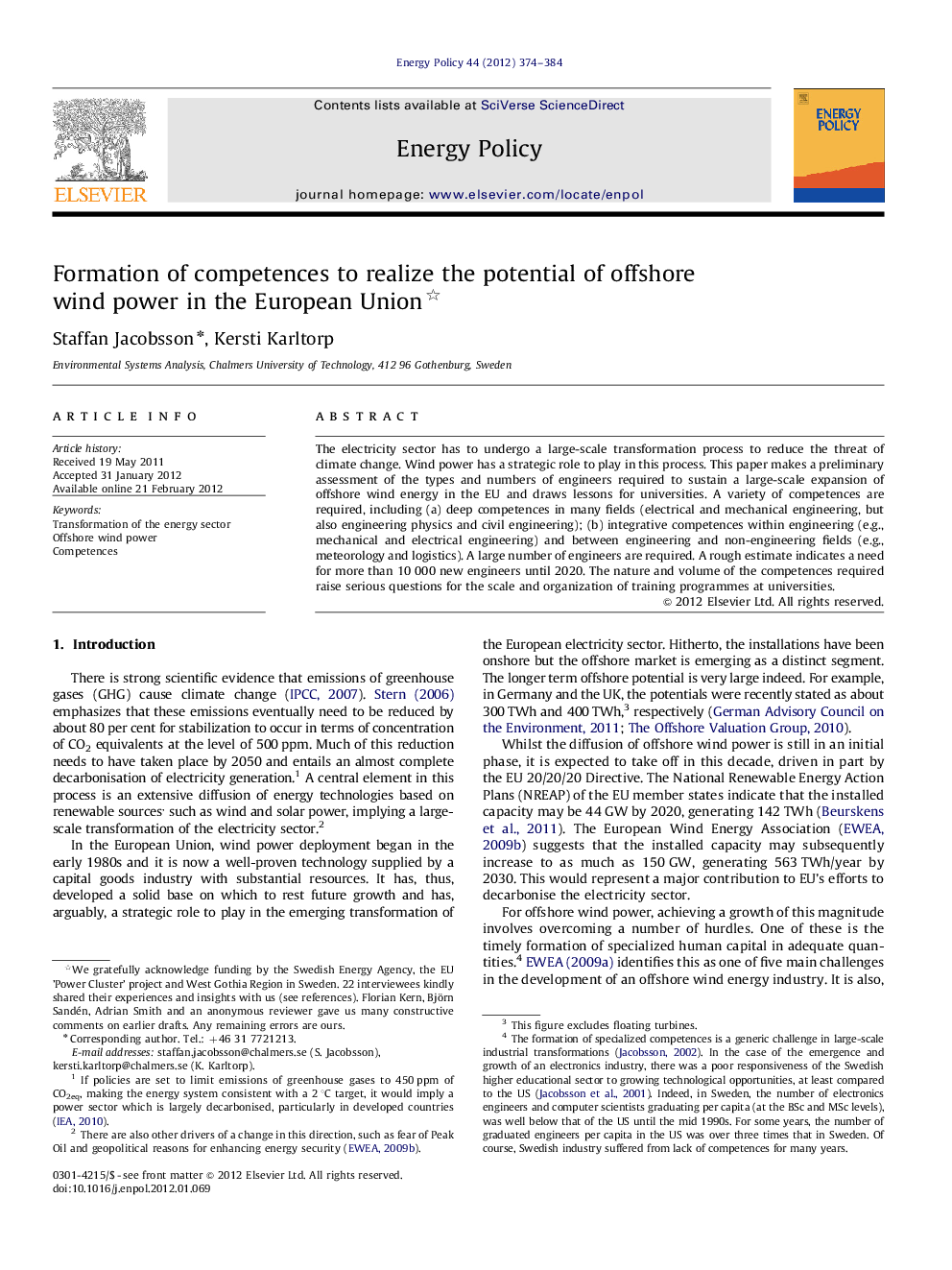| Article ID | Journal | Published Year | Pages | File Type |
|---|---|---|---|---|
| 995722 | Energy Policy | 2012 | 11 Pages |
The electricity sector has to undergo a large-scale transformation process to reduce the threat of climate change. Wind power has a strategic role to play in this process. This paper makes a preliminary assessment of the types and numbers of engineers required to sustain a large-scale expansion of offshore wind energy in the EU and draws lessons for universities. A variety of competences are required, including (a) deep competences in many fields (electrical and mechanical engineering, but also engineering physics and civil engineering); (b) integrative competences within engineering (e.g., mechanical and electrical engineering) and between engineering and non-engineering fields (e.g., meteorology and logistics). A large number of engineers are required. A rough estimate indicates a need for more than 10 000 new engineers until 2020. The nature and volume of the competences required raise serious questions for the scale and organization of training programmes at universities.
► We assess the number and types of engineers required to sustain a large expansion of offshore wind energy in EU. ► A large number of engineers are required in a variety of fields. ► Deep competences in, e.g., electrical and civil engineering are required. ► Integrated competences need to be formed too. ► We draw lessons for Universities.
